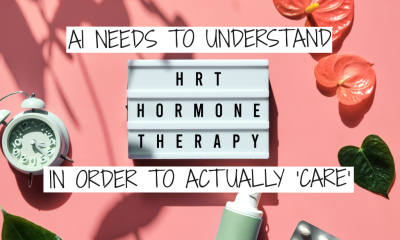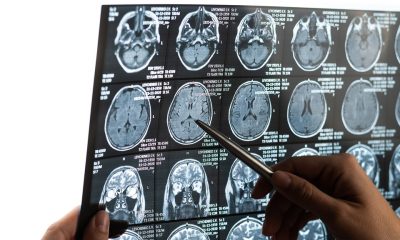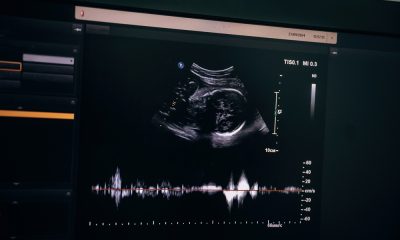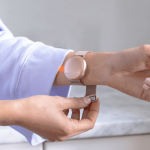Diagnosis
Dozens of women report suffering painful burns after using Always sanitary towels
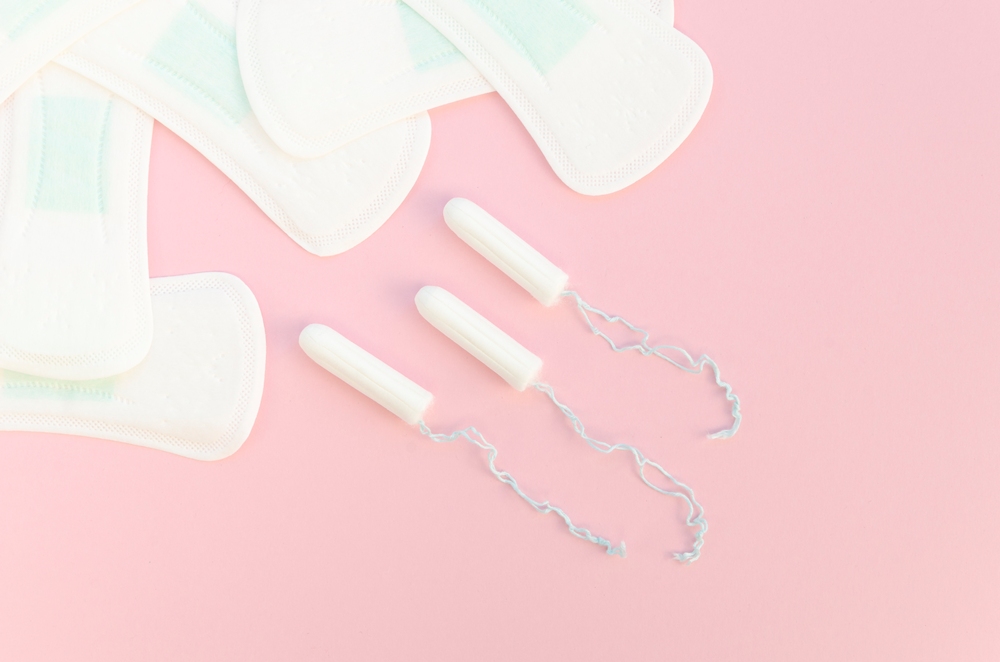
Dozens of women have claimed online that Always sanitary towels caused painful burns, prompting a response from the Procter & Gamble-owned brand.
Several TikTok users have posted videos describing reactions to the company’s products in recent days.
The clips, which have gained thousands of views, include complaints of itching, rashes and what users describe as chemical burns — skin damage caused by contact with irritating substances.
In one video viewed 45,000 times, user @ratqueen910 said the pads gave her “the worst chemical burns ever” in her groin area, where underwear meets the leg.
“When I looked at the burn with the flash on it really looked like my skin was gooey! I was scared af,” she told commenters.
She said she first thought the pain was chafing or an allergic reaction to spandex in her underwear, before seeing other women online describe the same symptoms.
“I realised that so many people have had problems the last few months with these pads,” she said.
“It’s not like, ‘oh, I switched over to Always pads’ — no, I’ve used them since I was in like sixth grade.
“So they must have changed the formula, messed something up, put some extra chemicals in that sh**t because it messed me up. I had chemical burns. I had issues and I didn’t know what it was.”
She said a doctor suggested another cause for the irritation, but she believes the pads were to blame, noting she had never been sensitive to scents or suffered urinary or yeast infections before.
Her post drew hundreds of comments, with many women saying they too had reactions to Always’ Flexfoam pads.
One wrote: “The whole area that the pad touched gave me a chemical burn after only a few hours. It was the Flexfoam.”
The original poster replied: “Mine was Flexfoam as well.”
While users did not specify exact product types, Always sells both day and night versions of its Infinity Pads with Flexfoam, which appear to be those mentioned.
Another commenter said: “Just a few days ago I was on my period using Always pads and I was f**king itching and it was burning. I never itch or have pain down there. I took the pad off so quick.”
A third wrote: “I switched to Honey Pot and had been fine. When my coworker gave me an Always pad, I was hesitant but used it — and got a chemical burn.”
Others described repeated irritation.
One said: “I use another brand for the first half of my period, then Always for the last two days, and I’ve had this burn for three months in a row. Stopped using them last month and no issue.”
Some also reported rashes or itching. One wrote: “In real time I am itching and getting a rash. I wore an Always pad earlier today.”
An Always spokesperson told the Daily Mail: “Our pads are used safely by millions of women every day around the world.
“Their safety is our top priority, and we carefully evaluate every component of our Always products to minimise the chances of skin irritation or allergic reactions.”
Hormonal health
Women better protected against early Parkinson’s neurodegeneration, study finds
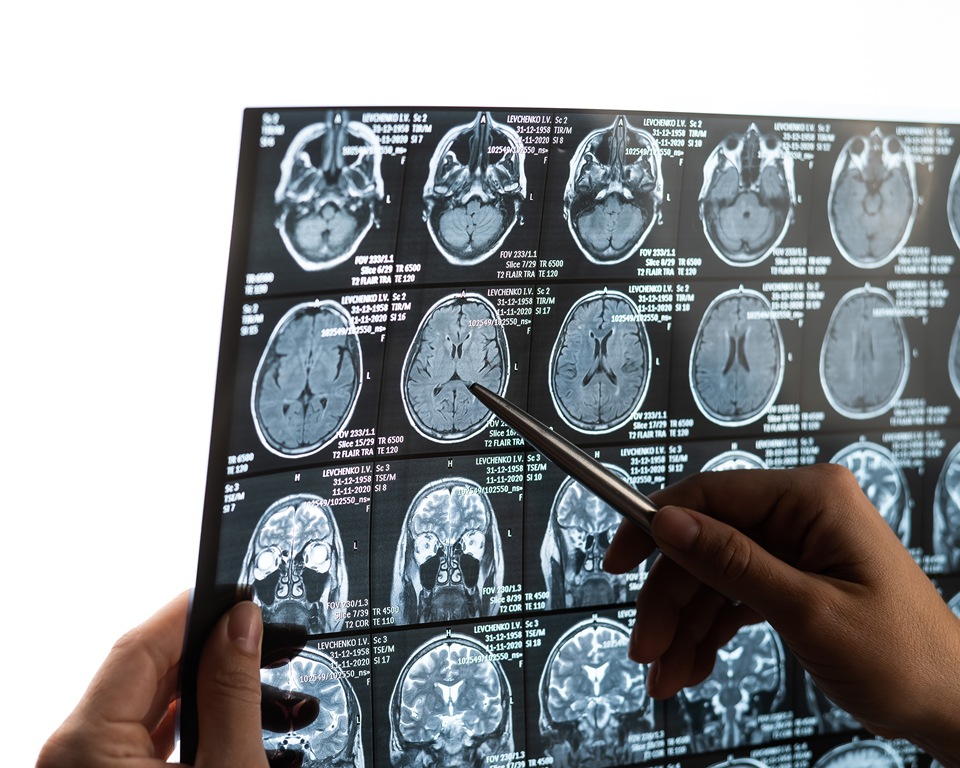
Women with an early precursor to Parkinson’s disease show much less brain shrinkage than men, despite similar disease severity, new research shows.
The discovery could help scientists explore how hormones might one day be used to treat the neurodegenerative condition.
The findings are based on data from nearly 700 participants across nine international research centres.
The study focused on isolated REM sleep behaviour disorder — a condition in which people physically act out their dreams.
It is considered the most reliable early warning sign of diseases caused by toxic protein build-up in the brain.
More than 70 per cent of those affected later develop Parkinson’s disease, Lewy body dementia or multiple system atrophy, which affects several body systems.
Researchers from Université de Montréal analysed 888 brain scans from centres in Canada, the Czech Republic, the UK, France, Australia, Denmark and Italy.
After quality checks, 687 participants were included: 343 patients with the sleep disorder and 344 healthy controls.
The results revealed clear sex-based differences.
While 37 per cent of the cortical areas — the brain’s outer layer responsible for higher functions — showed thinning in men, only one per cent of regions were affected in women.
This difference remained even though participants were of similar age (around 67) and had comparable clinical profiles.
Marie Filiatrault is first author of the study and a doctoral student at Université de Montréal.
The researcher said: “Men show much more extensive and severe cortical thinning — the outer layer of the brain that controls our higher functions — than women, particularly in areas linked to movement, sensation, vision and spatial orientation.”
To understand the protective effect, researchers compared brain images with gene activity in different regions, measured in healthy brains after death.
They found that the less-affected areas in women showed higher expression of genes related to oestrogen function, particularly ESRRG and ESRRA, which produce oestrogen-related hormone receptors.
The ESRRG gene was especially notable, showing greater activity in brain tissue than elsewhere in the body.
These receptors play key roles in mitochondrial function — the cell’s energy production system — and in the survival of dopamine-producing neurons, the cells that die in Parkinson’s disease.
Shady Rahayel is professor at Université de Montréal’s Faculty of Medicine and lead author of the study.
Rahayel said: “This sleep disorder offers a unique window of opportunity to study the mechanisms of neurodegeneration before major motor or cognitive symptoms appear.
“Our results suggest that certain brain areas in women with isolated REM sleep behaviour disorder are better protected than those in men, likely through the action of oestrogens.”
The team chose to study this precursor condition because it allows observation of brain protection mechanisms before major motor symptoms develop.
Although only 25 to 40 per cent of people with Parkinson’s experience REM sleep behaviour disorder, studying this early stage gives insight into how the brain resists damage when it is still limited.
Previous studies have shown that women with established Parkinson’s disease tend to experience slower progression than men, pointing to similar protective effects.
The findings could shape future research and treatment development.
The authors recommend separating men and women in clinical trials, which could improve statistical accuracy and reduce the number of participants required.
The biological mechanisms identified — particularly those linked to the ESRRG gene — could also become potential therapeutic targets.
Early laboratory research suggests that increasing ESRRG activity may protect dopamine-producing neurons from the toxic effects of alpha-synuclein, a protein that builds up abnormally in the brains of people with Parkinson’s.
“This study brings us closer to precision medicine, where treatments could be tailored not only to the disease but also to individual biological characteristics, including sex,” said Rahayel.
Menopause
Earlier menopause may harm heart-brain health connection, study suggests

Women who experience menopause earlier in life may face damage to the connection between heart function and brain health, new research suggests.
The study of more than 500 participants examined whether an earlier age at menopause affects the relationship between cardiac performance and cognitive function, as well as changes in brain structure.
Researchers from the University of Toronto and Sunnybrook Research Institute assessed how reduced heart function and early menopause together influence brain health in women, who are already at greater risk of both cardiovascular disease and Alzheimer’s disease.
Heart performance was measured using resting left ventricular ejection fraction — the proportion of blood pumped out with each heartbeat — captured through cardiac MRI scans.
Brain MRI scans assessed grey matter volume (the nerve-cell-rich tissue) and white matter hyperintensity burden, which indicates areas of damage linked to ageing and vascular disease.
Participants also completed standardised cognitive tests, with results adjusted for factors including age, ethnicity, education, hormone therapy use and whether menopause occurred naturally or through surgery.
The findings suggest that early menopause and reduced heart function may have a combined negative impact on the brain.
Weaker cardiac output can limit oxygen and nutrient flow to brain tissue, increasing the risk of damage and dementia over time.
Tallinn Splinter is lead author from the University of Toronto and Sunnybrook Research Institute.
The researcher said: “We still don’t fully understand how menopause, and particularly earlier menopause, affects brain ageing.
“By examining the link between heart and brain health, we wanted to shed light on this important but often overlooked area.”
Previous studies have shown that earlier menopause is linked with higher risks of cognitive decline and Alzheimer’s disease.
This research builds on that evidence by showing how menopause timing and heart health interact to influence brain outcomes.
Dr Stephanie Faubion, medical director for The Menopause Society, said: “These findings highlight the importance of including sex-specific factors, such as age at menopause, in dementia research and in developing prevention and intervention strategies.”
Motherhood
Health Secretary announces inquiry into Leeds maternity services
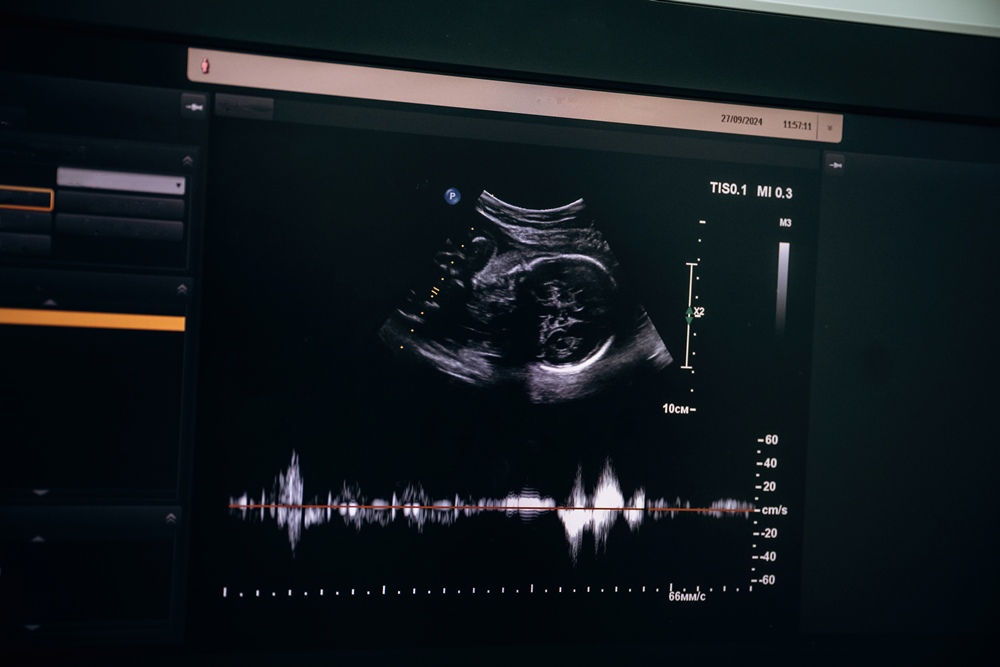
An independent inquiry will be launched into Leeds maternity services following a parent-led campaign over care failures stretching back 14 years.
Health secretary Wes Streeting said he was deeply concerned about problems at Leeds Teaching Hospitals NHS Trust, calling it “a real outlier” for perinatal mortality — deaths around the time of birth — compared with other hospitals nationally.
The announcement follows maternity services at the trust being rated “inadequate” after an unannounced Care Quality Commission inspection in December and January.
A subsequent NHS England report raised “significant” concerns about safety and quality of care.
After meeting affected parents in the city, Streeting said the trust — which runs maternity units at Leeds General Infirmary and St James’s Hospital — required scrutiny similar to the ongoing Nottingham maternity inquiry.
“I’ve decided that we need a Nottingham-style independent inquiry into what’s going on with maternity and neonatal services in Leeds,” he said.
“I think we need clear answers, accountability and improvement… I do think we need that independent look, not just for what’s happening now but stretching back to historic cases as well.”
The Nottingham review — the largest maternity inquiry of its kind — has examined hundreds of baby deaths and injuries at Nottingham University Hospitals.
It has led to the NHS paying out tens of millions of pounds for claims dating back to 2006 and prompted a police investigation, with findings expected next year.
Dozens of baby deaths in Leeds in recent years are thought to have been preventable.
Families affected by avoidable deaths of babies or mothers have long campaigned for an independent investigation.
Streeting has already commissioned a national review of NHS maternity services but said Leeds was an “exceptional case” that warranted its own inquiry.
“I don’t want to drown the NHS across the country in a whole series of local reviews into what I think is a national problem,” he said.
“But I have been persuaded, having been to Leeds recently to listen to families and look at the data.
“Given the challenges still evident — not least from the most recent Care Quality Commission inspection — and Leeds’s scale as one of the largest teaching hospitals in Europe, I think all of those things point to Leeds as an exceptional case for this kind of inquiry.”
He said details of the inquiry’s scope would be announced soon.
“I’ll proceed without fear or favour. If there are individuals who need to be held to account, I will ensure accountability.
“Where systemic improvements are needed, I will make sure they happen, and that’s why I believe this specific investigation is necessary.”
Campaigners welcomed the decision, describing the current system as “rotten”.
Fiona Wisner-Ramm and Daniel Ramm, whose daughter Aliona died 27 minutes after birth in 2020 following what an inquest described as “gross failures” in care, have been among those leading the campaign.
“This means that Leeds Teaching Hospitals NHS Trust will now be properly investigated, allowing for meaningful changes to its culture and practices,” they said in a statement.
“We hope that this inquiry will finally break the cycle of repeated errors and inadequate leadership, helping to prevent further deaths and injuries to mothers and babies.”
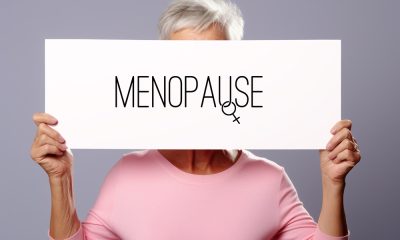
 Opinion2 weeks ago
Opinion2 weeks agoFDA plans to revise black box warning on menopause hormone therapies

 Hormonal health2 weeks ago
Hormonal health2 weeks agoAI-powered women’s health companion Nexus launches in UK

 News2 weeks ago
News2 weeks agoScientists turn human skin cells into eggs in IVF breakthrough
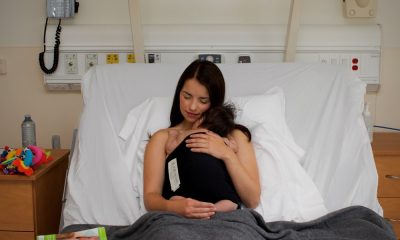
 Insight6 days ago
Insight6 days agoWomen’s health innovations recognised in TIME’s Best Inventions 2025

 News2 weeks ago
News2 weeks agoDaily pill could delay menopause ‘by years,’ study finds

 News2 weeks ago
News2 weeks agoAncient herb to modern must-have: Why ashwagandha is capturing UK women’s attention
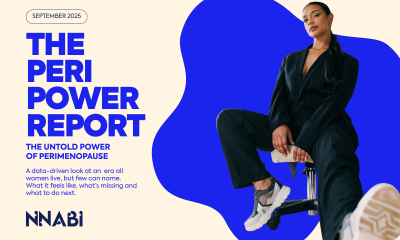
 Menopause3 weeks ago
Menopause3 weeks agoNew report exposes perimenopause as biggest blind spot in women’s health
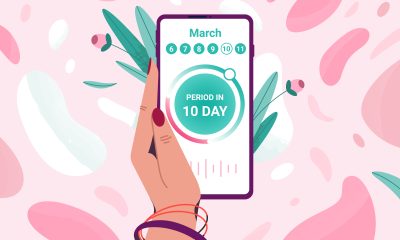
 News1 week ago
News1 week agoMenstrual cycle affects women’s reaction time, study finds





